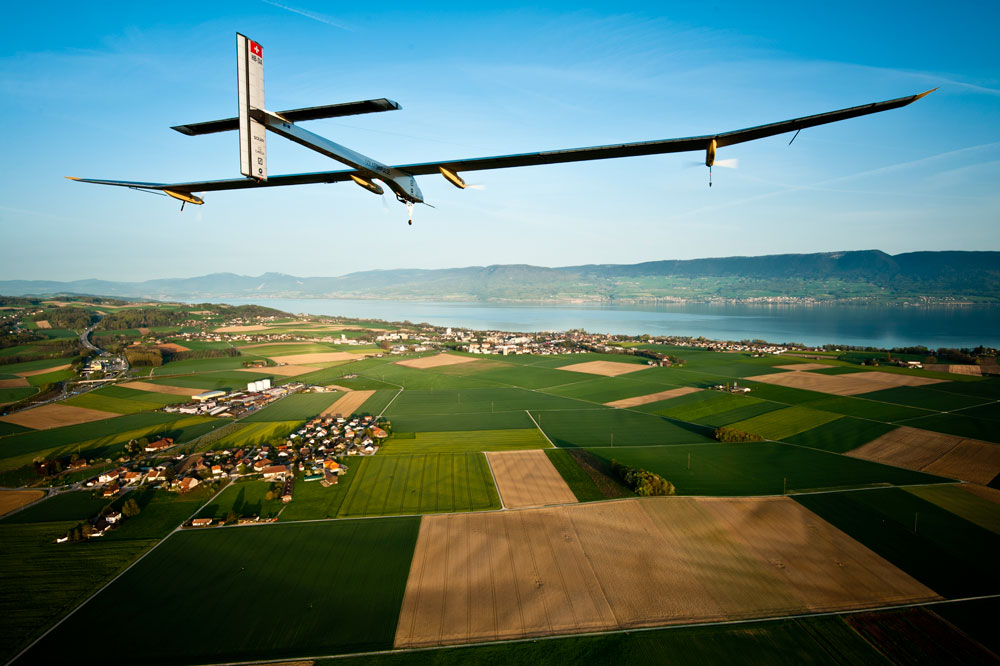Solar Impulse experimental solar-powered plane has taken off from Madrid en route to Morocco in a bid to complete its first transcontinental flight.
Gibraltar Crossing and Madrid – Rabat flight is a historical moment for the Solar Impulse and for solar aviation. The mission is as a final dress rehearsal for a round-the-world flight with a new and improved plane in 2014. Solar Impulse project began in 2003 and is estimated to cost about $100 million over 10 years.
The gigantic, but ultra-lightweight dimensions of Solar Impulse revolutionary airplane – capable of flying day and night without fuel – are its trademark feature. To build it, the whole team had to push back the frontiers of knowledge in materials science, energy management and the man-machine interface. Every one of its take-offs, propelled silently by its four electric motors, inspired its creators to consider using clean, new technologies to free the society, little by little, from dependence on fossil energy.
The Solar Impulse is not the first solar airplane ever designed, but it is certainly the most ambitious. None of its predecessors has ever managed to fly right through the night with a pilot on board.
Solar aviation began with model aircraft in the 1970s, when affordable solar cells appeared on the market. But it was not until 1980 that the first human flights were realized.
As captain Bertrand Piccard reached the highest point of his flight (almost 8’500m) quietly breezes its way through the Moroccan skies powered by solar energy, the United Nations Environment Programme (UNEP) announced yesterday, June 4th, the attribution of the 2012 Champions of the Earth Laureate Award to Solar Impulse project’s founder: Bertrand Piccard.
“The timing couldn’t be better as it only strengthens Solar Impulse’s message as well as the symbolism behind its current “Crossing Frontiers 2012” mission, demonstrating growing awareness and urgency to increase investment in renewable energies,” said the SolarImpulse team.
This year, six laureates have been selected for their outstanding efforts in the name of sustainable development. Among them, the Mongolian President Tsakhia Elbegdorj for his leadership effort to put the environment at the forefront of policies, Brazilian banker Fabio C. Barbosa and United Arab Emirates entrepreneur Dr. Sultan Ahmed Al Jaber for their entrepreneurial vision to invest in sustainable development and in clean technologies. Other awards were given for inspiration and action (Bertrand Piccard), Science and Innovation (Dr. Sander Van der Leeuw of the Netherlands) and for Grassroots Initiatives (Samson Parashina of Kenya). Laureates of the previous years have included former US Vice President Al Gore, photographer Yann Arthus-Bertrand and former leader of the USSR Mikhail Gorbachev.
The Ceremony took place yesterday, June 4th, during a Gala dinner. This event was a run-up to the opening of the Rio +20 Earth Conference, which will take place June 20-22 in Rio de Janeiro, Brazil.


